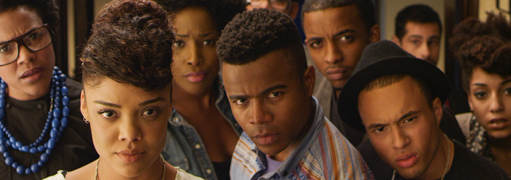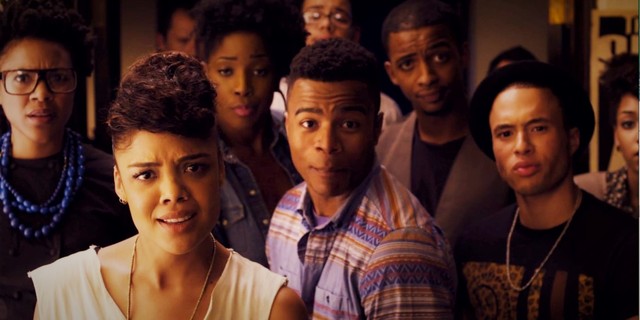Film Review: Dear White People
Unabashed Comedy-Drama About Black And White College Students Plays All The Race Cards


Sam White (Tessa Thompson) would like you to rephrase that last remark.


